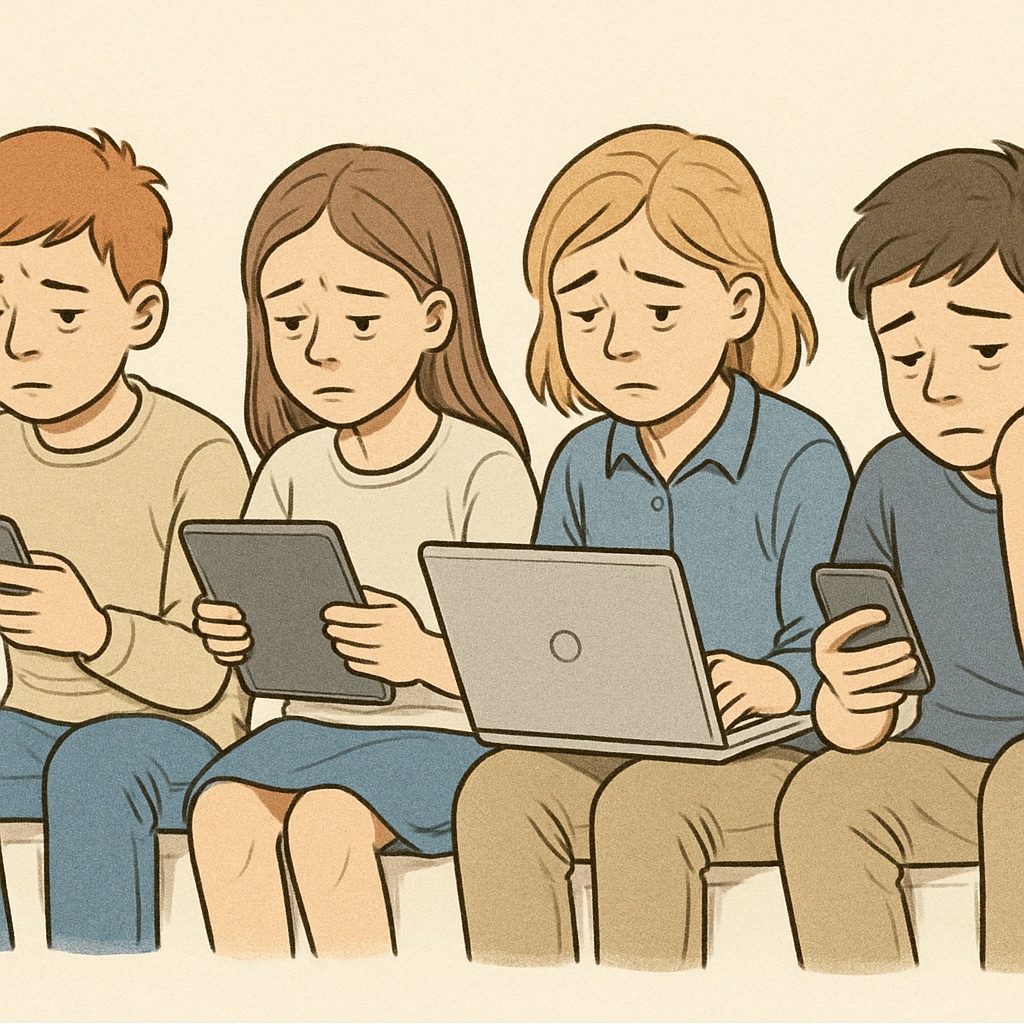Technology addiction, child development, and mental health have become critically interconnected issues in our screen-saturated world. As a parent and educator, I’ve witnessed firsthand how excessive device use alters children’s behavior, attention spans, and emotional regulation. According to the American Academy of Child & Adolescent Psychiatry, children aged 8-12 spend 4-6 hours daily on screens, while teens average 9 hours – time that could foster real-world skills and relationships.
The Hidden Costs of Digital Overexposure
Modern research reveals alarming connections between screen dependence and developmental delays:
- Reduced attention spans (studies show 25% shorter focus in children with >2 hours daily screen time)
- Impaired social skills development due to limited face-to-face interaction
- Increased anxiety and depression rates linked to social media use

Cognitive Consequences of Screen Dependency
The CDC warns that passive screen consumption inhibits critical thinking. Unlike traditional learning methods that require active engagement, digital content often delivers pre-packaged solutions, reducing problem-solving opportunities. Key impacts include:
- Weakened memory formation from constant information bombardment
- Reduced creativity due to algorithm-driven content consumption
- Disrupted sleep patterns from blue light exposure
Therefore, our family implemented “screen-free zones” during meals and before bedtime, observing noticeable improvements in conversation quality and sleep duration within weeks.
Practical Strategies for Balanced Tech Use
Transitioning away from digital dependence requires gradual, consistent approaches:
- Tech curfews: No devices 1 hour before bedtime
- Alternative activities: Replace screen time with reading, outdoor play, or family board games
- Co-viewing: When screens are used, parents should engage with the content

As research from the American Psychological Association confirms, children whose parents model balanced tech habits demonstrate better self-regulation. Our experience shows that limiting technology addiction protects child development and mental health more effectively than any parental control app.


